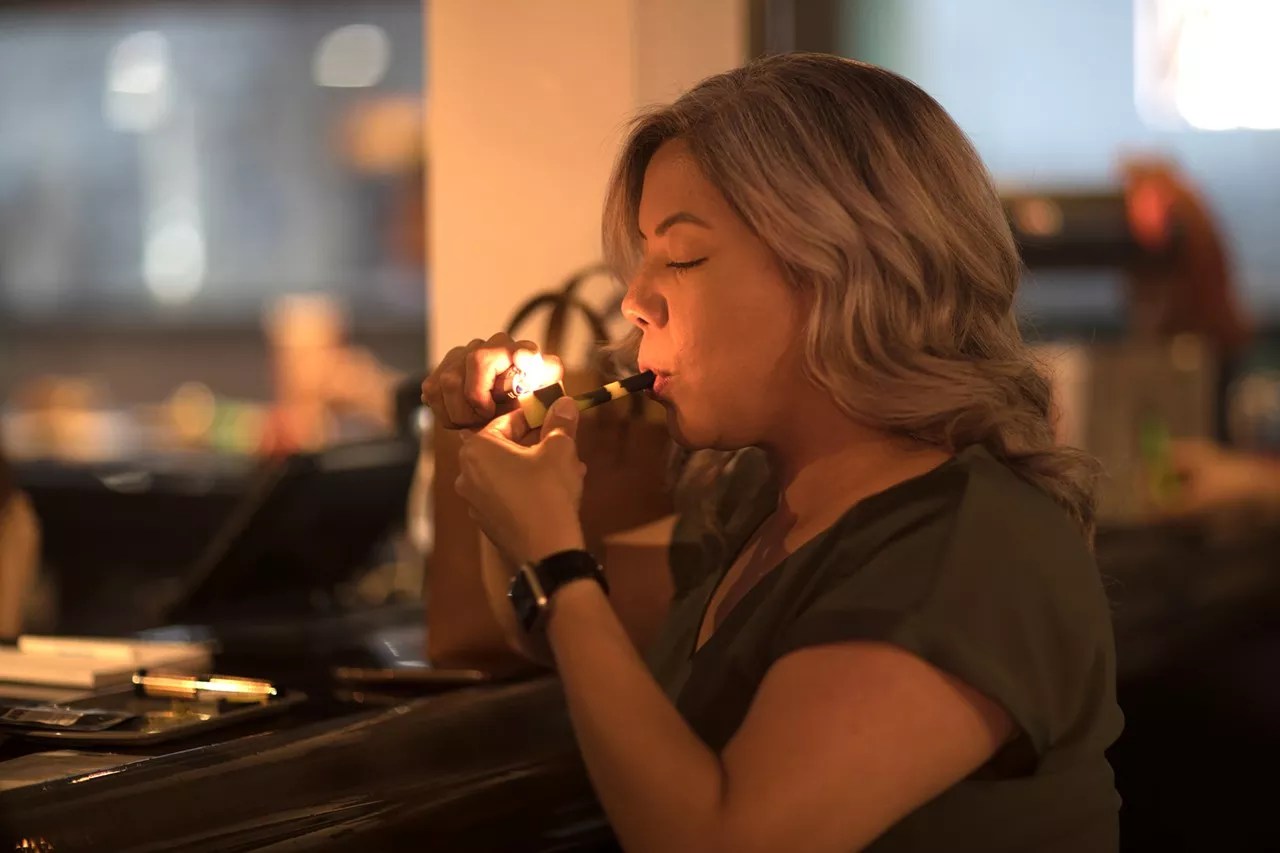
Jacqueline Collins

Audio By Carbonatix
Governor Jared Polis has ordered that state agencies regulating professional licenses will protect a person’s right to legal marijuana activities without workplace sanctions.
In an executive order issued July 14, Polis declared that anyone who consumes, possesses, grows or processes marijuana in accordance with Colorado law should not be subject to professional sanctions or professional license revocation. This includes people who engage in marijuana-related activities in other states “in a manner that would be legal in Colorado,” according to the order.
Polis has ordered the Colorado Department of Regulatory Agencies (DORA) and Department of Revenue (DOR) to ensure such protections, directing state agencies not to cooperate with out-of-state investigations “related to disciplinary action against a professional license, certification, or credential for marijuana-related actions” that are legal in Colorado.
DORA and DOR, which are responsible for issuing licenses for dozens of professions, including those in health care, trade practices, cosmetology, engineering, combat sports, real estate and much more, have ninety days to “work with all programs and boards of professional licensure” operating under their purviews to establish and implement the new policies.
Pointing to the state’s workforce shortage, Polis says that preventing people from getting employment because of activities that are lawful here hinders Colorado’s economy. In 2019, about 19 percent of Colorado adults reported marijuana use within the past thirty days, according to a 2021 report from the Colorado Department of Public Safety.
“The exclusion of people from the workforce because of marijuana-related activities that are lawful in Colorado, but still criminally penalized in other states, hinders our residents, economy and our State. No one who lawfully consumes, possesses, cultivates or processes marijuana pursuant to Colorado law should be subject to professional sanctions or denied a professional license in Colorado,” Polis says in a statement accompanying the order.
Polis has been supportive of both state and national marijuana reform during his time as a U.S. Representative and Colorado governor, but while his order protects an individual’s right to a profession, it doesn’t prevent a private employer from being able to discipline or fire employees for marijuana use.
“No executive order can impact employment law, including the legal ability of private employers regarding permitted and prohibited activities or testing. That would take a bill in the legislature,” says Melissa Dworkin, Polis’s deputy press secretary. “This new executive order will simply allow employers to hire people for jobs that require occupational or professional licensure through the state from a broader pool of applicants. This executive order modernized our licensing to today’s laws and will help address workforce shortages in key professions.”
Since Colorado legalized recreational marijuana, there have been several attempts in the state legislature to protect the right to consume marijuana during off-hours, but none have gotten very far. The big blow came in 2015 , when the Colorado Supreme Court ruled in favor DISH Network’s firing of a medical marijuana patient for consuming off-hours. That ruling set a precedent that marijuana use at any time, medical or recreational, could still be grounds for dismissal in Colorado.
A 2020 bill proposed that recreational marijuana use no longer be a fireable offense in Colorado, but it was opposed by insurance and contractor trade associations as well as numerous chambers of commerce. During testimony, several lawmakers said they were scared off from supporting the bill because of insufficient scientific impairment testing for marijuana use, as well as claims that allowing off-hour marijuana use would lead to less safe workplaces across the state. That bill was rejected 0-10 in its first committee vote.
Earlier this year, a bill proposing similar protections for off-hour marijuana use – as well as allowing medical marijuana patients to consume THC medication at work – was also killed in its first committee vote; lawmakers cited many of the same objections they’d made in 2020.
Mason Tvert pushed Colorado’s marijuana legalization campaign in 2012, and is currently a partner in cannabis policy and government relations firm VS Strategies. While praising Polis’s executive order, Tvert says that employers need to go further.
“Employers have slowly but surely been coming around to accepting that cannabis is now legal in many states, but there are still far too many instances in which consumers are unfairly punished. The conflict between federal and state laws creates a tricky legal situation, but Governor Polis’s action on this subject is a big step in the right direction,” Tvert says. “Patients should never have to choose between using their medicine or making a living. And adults should not be perversely incentivized to choose alcohol instead of cannabis for fear of losing their job.”
Although Colorado lawmakers haven’t approved employee protections for marijuana use, other states have made the jump. The Nevada legislature passed a law in 2020 that bans pre-employment marijuana tests; New York City also prohibits them. In 2017, the Massachusetts Supreme Court ruled in favor of a medical marijuana patient, saying that using medical marijuana – the only legal form of marijuana in Massachusetts at the time – off the job wasn’t grounds for dismissal. Since legalizing recreational marijuana, Montana and New Jersey have also enacted protections for off-hours recreational marijuana use, while at least fifteen other states protect medical marijuana use off the clock.
Here’s Polis’s executive order: